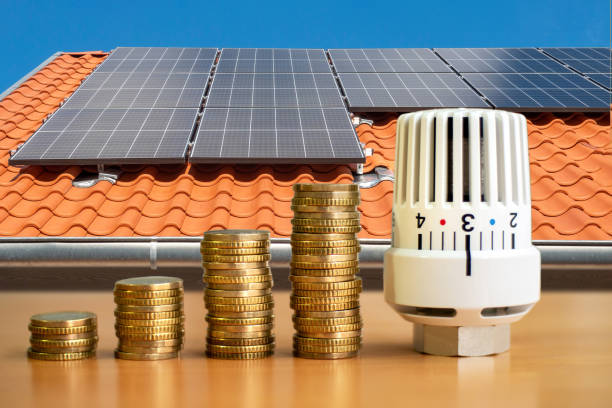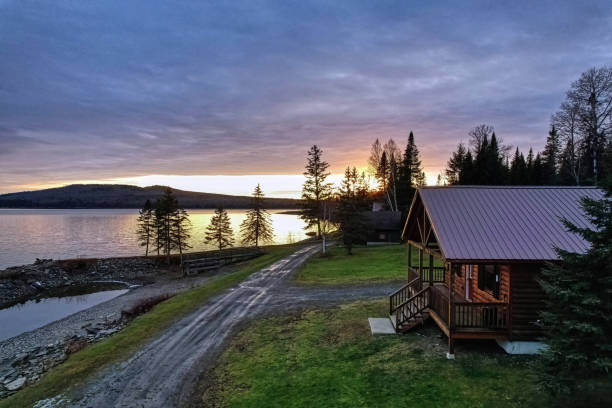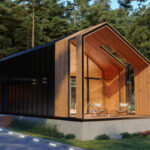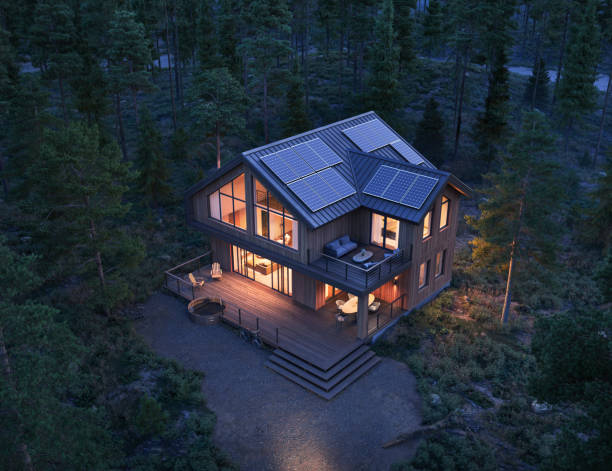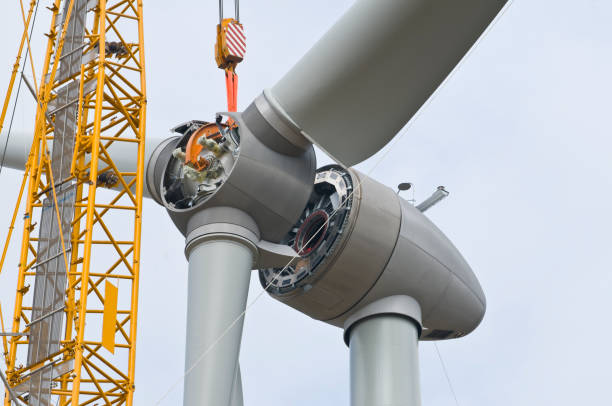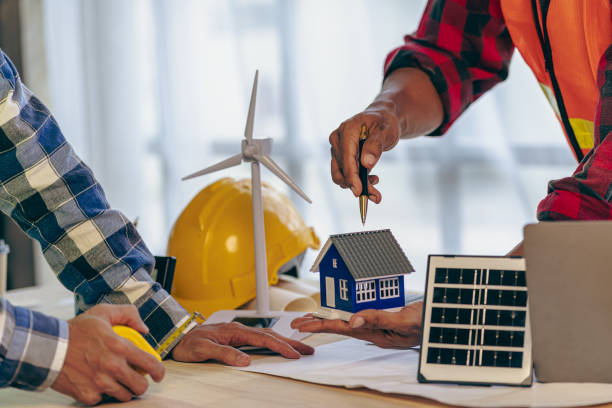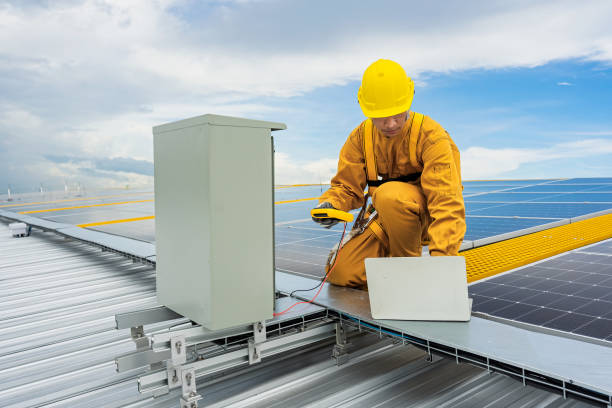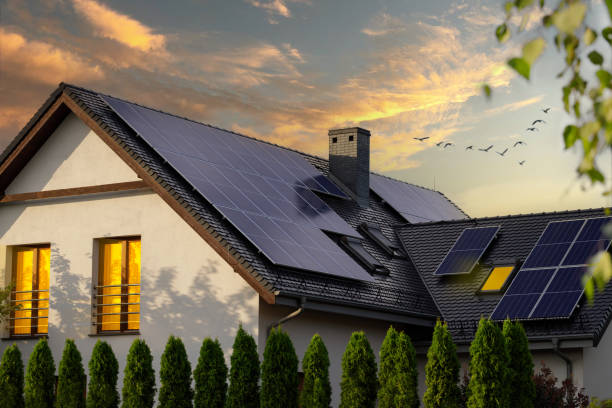Is Living Off the Grid Illegal in Canada? Explore Rules & Reality
This post contains affiliate links. I may earn a commission at no extra cost to you if you make a purchase. Note that I’m not a health or outdoor safety professional, so further research is advised. Your support keeps Outdoors A-Z running—thank you! Read the full disclosure.. Read the full disclosure here.
Living off the grid is a lifestyle choice that involves creating a self-sufficient way of life, disconnected from conventional services such as electricity, water, and sewer. However, some people may wonder if it’s legal to live off the grid in Canada. In this section, we will explore the rules and reality of living off the grid in Canada.
Table of Contents
Understanding Off-Grid Living in Canada
Living off the grid in Canada refers to a lifestyle that relies on self-sufficient systems for energy, water, and waste management. This means that individuals who live off the grid are not connected to municipal services such as water, electricity, or sewage systems.

The motivations for choosing an off-grid lifestyle in Canada can vary. Some individuals may be seeking a simpler way of life, a desire for greater self-sufficiency, or a commitment to reducing their environmental footprint.
Living off-grid can offer several benefits, such as increased independence, reduced costs, and a smaller carbon footprint. However, it also requires individuals to be more self-reliant and to take on responsibilities that are usually handled by municipalities or utility companies.
The off-grid lifestyle can take many forms in Canada, from small cabins in the woods to large-scale homesteads with advanced renewable energy systems. Regardless of the specific setting, off-grid living requires individuals to be resourceful, adaptable, and committed to sustainable practices.
Challenges of Off-Grid Living in Canada
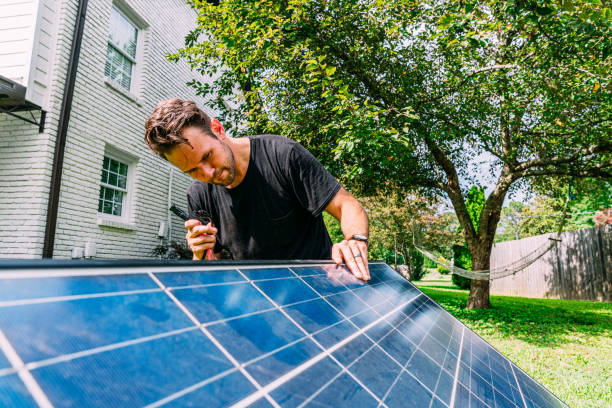
While off-grid living can offer many benefits, it also presents unique challenges. For example, obtaining permits for alternative energy systems can be a challenge, and remote locations may limit access to essential services such as healthcare and emergency response. Additionally, zoning and building codes can vary widely depending on the province or municipality, which may pose challenges for those looking to build or modify off-grid homes.
Despite these challenges, many Canadians have successfully embraced the off-grid lifestyle, and there are several resources available to support those interested in exploring this lifestyle further.
Regulations and Challenges of Living Off the Grid in Canada
While living off the grid in Canada is not illegal, it can come with its fair share of regulations and challenges. Individuals living off the grid must be aware of zoning and building codes specific to their location and ensure they are following all required permits and regulations.

Additionally, accessing essential services can be a challenge for those living off the grid. Healthcare and emergency response services may not be readily available, and it may take longer for help to arrive in the case of an emergency.
Obtaining permits for alternative energy systems can also be a challenge. While Canada promotes the use of renewable energy sources, individuals may still face difficulty obtaining permits for systems such as solar panels or wind turbines.
Despite these challenges, many individuals find that the benefits of living off the grid make it worthwhile. By embracing sustainable practices and innovative solutions, off-grid living can promote self-sufficiency, reduce environmental impact, and create a fulfilling and environmentally conscious lifestyle in Canada.
Opportunities for Sustainable Off-Grid Lifestyles in Canada
Living off the grid in Canada opens up a world of opportunities for a sustainable and self-sufficient lifestyle. There are many advantages of embracing off-grid living, including:
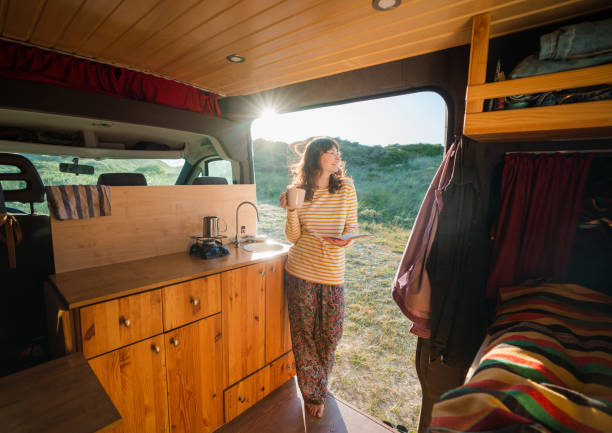
- Reducing environmental impact: Off-grid living allows individuals to reduce their carbon footprint by relying on renewable energy sources, reducing waste, and conserving water.
- Promoting self-sufficiency: Living off the grid encourages individuals to become more self-reliant, growing their own food, and taking care of their own energy and water needs.
- Embracing renewable energy sources: With advances in technology, it is now easier than ever to generate renewable energy from sources such as solar or wind power.
In addition, there are many innovative solutions and technologies available that can support off-grid living in Canada. These include:
| Technology | Description |
|---|---|
| Solar Power | Photovoltaic (PV) solar panels can be used to generate electricity, providing a reliable and renewable source of power. |
| Rainwater harvesting | Collecting and storing rainwater can provide a sustainable source of water for drinking, cooking, and bathing. |
| Permaculture | A sustainable approach to agriculture that focuses on creating self-sustaining ecosystems, using natural processes and techniques to grow food. |
By embracing these opportunities, individuals can create a fulfilling and environmentally conscious off-grid lifestyle in Canada.
Conclusion
In conclusion, living off the grid is not inherently illegal in Canada. Although there may be regulations and challenges to navigate, individuals can still create a fulfilling and environmentally conscious off-grid lifestyle in Canada.
By embracing sustainable practices such as renewable energy sources, rainwater harvesting, and permaculture, individuals can reduce their environmental impact and promote self-sufficiency. It is important to understand the legal framework and restrictions in the province or municipality, as well as the potential difficulties in accessing essential services like healthcare and emergency response.
Despite these challenges, many Canadians have successfully carved out an off-grid life, and there are numerous opportunities to innovate and explore alternative solutions for sustainable living. Whether one chooses to live off the grid full-time or partially, it is a worthwhile journey towards greater self-sufficiency and environmental stewardship.
FAQ
Is living off the grid illegal in Canada?
No, living off the grid is not inherently illegal in Canada. However, there may be regulations and challenges that vary depending on the province or municipality.
What does off-grid living entail in Canada?
Off-grid living in Canada involves relying on self-sufficient systems for energy, water, and waste management. It means being independent from public utilities and embracing a sustainable lifestyle.
Are there regulations and challenges for living off the grid in Canada?
Yes, there are regulations and challenges that individuals may face when living off the grid in Canada. These can include zoning and building codes, accessing essential services, and obtaining permits for alternative energy systems.
What are the opportunities of living off the grid in Canada?
Living off the grid in Canada offers opportunities for reducing environmental impact, promoting self-sufficiency, and embracing renewable energy sources. It allows individuals to create a more sustainable lifestyle.
Is living off the grid in Canada environmentally conscious?
Yes, living off the grid in Canada can be environmentally conscious. By reducing reliance on traditional utilities and embracing renewable energy sources, individuals can minimize their environmental footprint.
Can I live off the grid in any province or municipality in Canada?
While living off the grid is generally allowed in Canada, specific regulations and restrictions may vary depending on the province or municipality. It is important to research and understand the local requirements.
What are some innovative solutions for off-grid living in Canada?
There are various innovative solutions for off-grid living in Canada, including solar power, rainwater harvesting, and permaculture. These technologies can support sustainable and self-sufficient lifestyles.
How can I navigate the regulations and challenges of off-grid living in Canada?
To navigate the regulations and challenges of off-grid living in Canada, it is recommended to research the specific requirements of the province or municipality you plan to live in. Consulting with experts in the field can also provide valuable guidance.
Can I connect to public utilities while living off the grid in Canada?
Connecting to public utilities while living off the grid in Canada depends on the regulations and policies of the specific province or municipality. Some areas may allow limited connections, while others may require complete self-sufficiency.
Are there financial incentives for off-grid living in Canada?
There may be financial incentives available for off-grid living in Canada, such as government grants or tax credits for renewable energy systems. It is advisable to research and consult with relevant authorities for specific opportunities.



